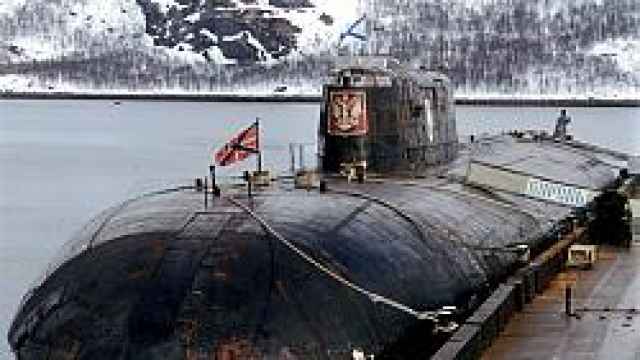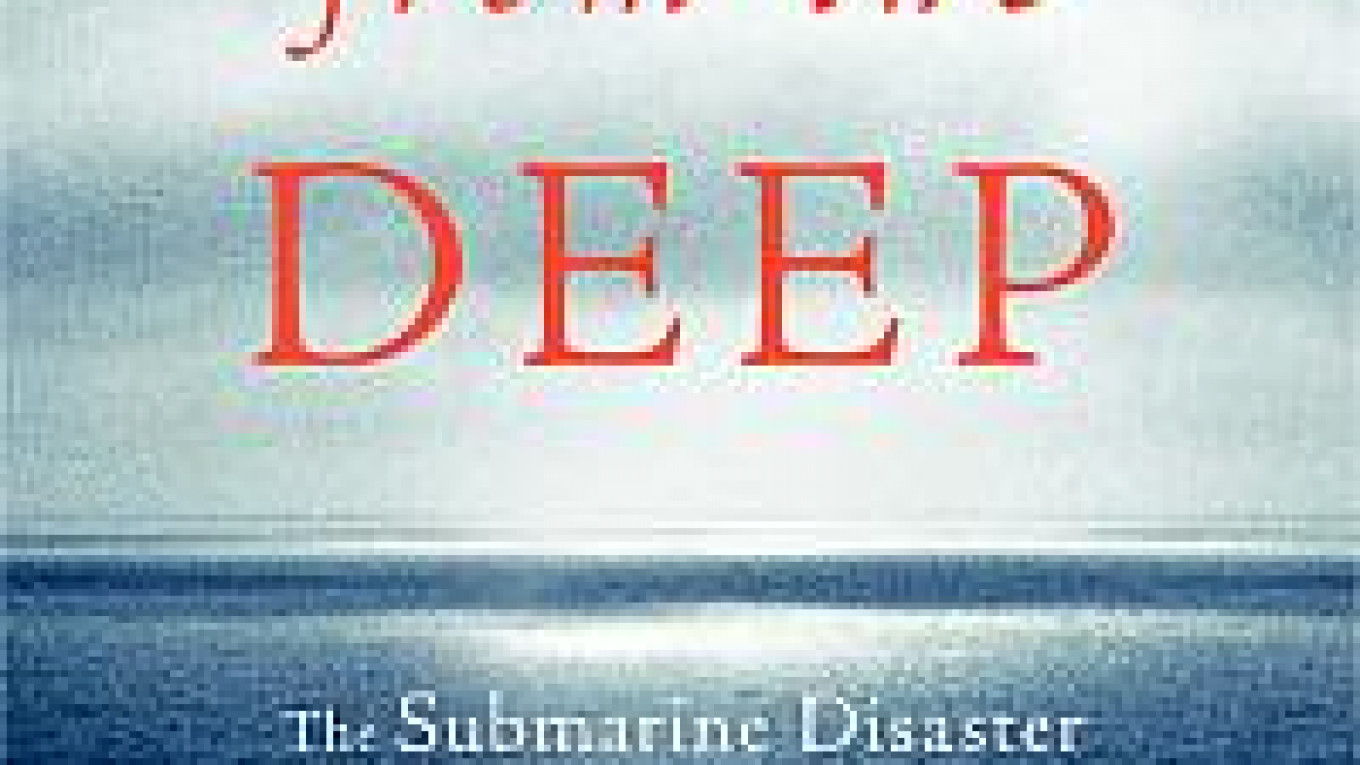But as the truth about the disaster emerged, it was the reaction of the Russian military -- befuddled, self-contradictory and intentionally deceptive -- that took center stage. No less shocking was newly elected president Vladimir Putin's decision to continue his vacation on the Black Sea while the submarine accident was making headlines across the world. In short, the Russian leadership gave a brilliant example of how not to handle a crisis. The Kursk had been participating in an exercise intended to illustrate to the world that Russia was still a major player, but the inept reaction of the Kremlin -- and, especially, the Navy -- exposed the decline of the country and its military instead.
Skillfully building up tension in "Cry From the Deep," Ramsey Flynn, an American investigative journalist who admits he had never worked in Russia before beginning the book, gives a readable, if overly emotional, blow-by-blow account of a disaster whose causes are still fraught with debate. To this day, many in the Russian Navy think that the Kursk was sunk by a collision with a U.S. or British submarine, even though Putin has said that there is little proof of such a theory. Indeed, it's hard to believe that evidence of a collision would have been withheld by the Russians if it existed.
Flynn argues with skill that a faulty torpedo was to blame for the sinking of the Kursk -- the same conclusion reached by Prosecutor General Vladimir Ustinov in the official inquiry. The torpedo that sank the Kursk was a Type 65-76, more familiarly known as a tolstushka, or "fat girl," because of its size. The tolstushka has a bad reputation among sailors since the high-test hydrogen peroxide that it uses as an oxidizer can break down upon contact with common catalysts, rapidly expanding in volume and creating massive temperatures. The weapon had been loaded onto the Kursk on Aug. 3 with a "flood of paperwork irregularities," and roughly handled in the process. In an indication of how bad it is to be a sailor in the Northern Fleet, military analysts have claimed that submarine crews often have to pay torpedo units to ensure that they get well functioning weapons.
The torpedo exploded in the Kursk's firing tube on a Saturday at 11:28 a.m. With fires raging at up to 2,700 degrees Celsius, warheads on the remaining weapons detonated 2 minutes and 15 seconds later. The Memphis, a U.S. submarine tracking the Kursk about 40 kilometers away, registered the blasts, as did Norwegian sensors and other vessels. A Russian ship, the Peter the Great nuclear cruiser, also noted the explosions, but Fleet Commander Vyacheslav Popov made little effort to investigate.
Flynn gives a good overview of the U.S. reaction to the disaster, showing how top officials in the United States, and probably in Britain, knew about the explosion and likely sinking of the Kursk well before the Russian military got around to informing Putin. U.S. National Security Adviser Sandy Berger and Defense Secretary William Cohen were told on Saturday afternoon, Moscow time, when the Kremlin was still in the dark. Twelve hours after the blasts, Popov called Moscow to report that the Kursk was missing, and Defense Minister Igor Sergeyev was informed. But Sergeyev didn't tell Putin until 7:15 the next morning.
 Itar-Tass Pictured here in 1999, the Kursk submarine sank during a military exercise in the Barents Sea. | |
Packing his narrative with impressive detail about the Northern Fleet's belated reaction, Flynn rightly hammers top Russian admirals and military officials for their attempts to stall British and Norwegian efforts to rescue the sailors. But Flynn surely misses the fundamental point: When you rip away the drama, there was very little chance that anyone could have gotten out alive. The Russian rescue teams were too badly organized and equipped, and the foreign teams were too far away. According to Flynn, the best submarine rescue operation was based in Britain, but was being trucked across Europe for an exercise in the Mediterranean. It would have taken 60 hours to get it into place, he says.
With the Kursk leading news reports worldwide, the Navy continued to make an array of inane comments suggesting that the soldiers were still alive, and refusals of Western help were reported on Russian television. Down in Sochi, a tanned Putin in casual dress provoked tough criticism from the local press when he appeared on national television. While it is surely naive to think that Putin would have been more in control of his country from the Kola Peninsula than on the Black Sea, this, in a sense, was not the point for viewers of Russian and world television. More than anything, the Russian leadership had lost an information war, coming across as callous and incompetent while sailors' mothers were being injected with sedatives.
Flynn has produced a racy overview of the sinking of the Kursk, but his narrative is marred by sensationalistic additions to what is already a sufficiently traumatic story. We are told, for example, that Putin "is itching to escape as soon as possible for his vacation" and that Dmitry Kolesnikov, feeling particularly in love before he boards the submarine, "finds it hard to believe this dancing goddess is his wife." There's no need to grasp for vicarious feelings when the real story is so sad and scary. The perilous state of what was once the world's biggest fleet of nuclear submarines should be a concern for everyone, not least for the admirals who send young sailors to man them.
A Message from The Moscow Times:
Dear readers,
We are facing unprecedented challenges. Russia's Prosecutor General's Office has designated The Moscow Times as an "undesirable" organization, criminalizing our work and putting our staff at risk of prosecution. This follows our earlier unjust labeling as a "foreign agent."
These actions are direct attempts to silence independent journalism in Russia. The authorities claim our work "discredits the decisions of the Russian leadership." We see things differently: we strive to provide accurate, unbiased reporting on Russia.
We, the journalists of The Moscow Times, refuse to be silenced. But to continue our work, we need your help.
Your support, no matter how small, makes a world of difference. If you can, please support us monthly starting from just $2. It's quick to set up, and every contribution makes a significant impact.
By supporting The Moscow Times, you're defending open, independent journalism in the face of repression. Thank you for standing with us.
Remind me later.


